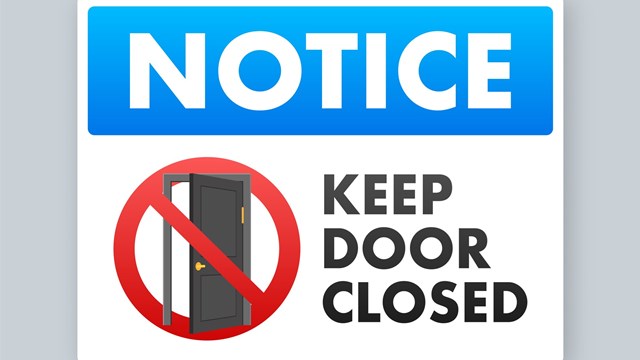Different HOAs take varying approaches to securing their properties—some rely entirely on video surveillance, some utilize intercom systems and leave it at that, and others want a living, breathing security personnel to patrol and guard their community. Hiring security staff is no small undertaking, however—there are multiple questions and issues that must be considered in order to ensure the safety of residents and protect your association from unnecessary liability.
To Go Solo, or Go Professional?
With all the responsibility—and potential liability—involved in providing security staff to residential buildings and associations, it's important to consider whether your HOA's board/management team will hire personnel directly, or work with an established security firm that will in turn provide staff.
Jack Jackson, president of Clark & Ramson, an employee screening company based in Somerville says he's encountered many management companies and boards who have attempted to hire security personnel the same way they would a superintendent or groundskeeper—by performing interviews and background checks themselves, without the guidance of a professional. While going out and hiring security staff directly may save a little money, the do-it-yourself approach definitely has its drawbacks.
"It increases the building's liability if they terminate someone because of something found in their credit history, for example, and the employee was not completely aware that their background was being checked," says Jackson. "[Professional firms] have forms that make the employee aware that a background check will be done. The company is protected if the employee says, 'I never gave you permission to check my information'."
External investigation firms also have access to local, statewide and national databases from which they harvest their data, and they comply with laws about collecting and handling personal information.
"You can do it on your own," says Jackson, "but you have to be careful, and it takes time. Professionals have databases and resources to get information from wherever the person may have lived. We have the expertise to go to a courthouse and find exactly what we're looking for."
In order to get a more dispassionate picture of a potential security staffer's history and experience, some companies perform full-scale investigations to verify an applicant's resume and background information.
"In cases where there's a resume involved, we do attempt to obtain as much information as we can to verify the information," Jackson says. "That involves looking at old school records, military forms, and so on."
Jackson also says that knowing everywhere a candidate has lived can be important. If a person doesn't tend to stick with jobs very long, they may move a lot as a result and may decide to leave some stops off their resume or application to make it look more professional. That could indicate that they're running from something, and cast serious doubts upon their reliability.
More Reasons to Go Professional
Which brings us to another reason a board might reconsider their plans to hire an independent "security" guard without professional affiliation. Without a company backing the guard, there's really no assurance that the guard working for your association is truly qualified and competent—and little protection if that guard's actions on the job somehow lead to a lawsuit.
Security guards in New Jersey are required to be licensed and insured under the company's licensing and insurance policies and need to be renewed every few years, according to Anthony Frusco, the director of operations for Marion Security Agency in Red Bank.
As far as training, New Jersey requires that each guard typically undergo at least 24 hours of training before being eligible to work. They also submit prospective employees' fingerprints to the FBI's National Crime Information Center (NCIC). The guard will be unable to work in the state of New Jersey if he or she's been convicted of any felonies and most misdemeanors.
Additionally, effective January 1, 2007, new legislation—entitled the Security Officer Registration Act (SORA)—will come into play, according to Frusco. The act requires that all security officers be licensed, and that a licensed security company have at least five years of law enforcement experience. The act will also require officers to undergo additional training and take refresher courses to stay current in their profession. Some of the course work includes Homeland Security/terrorism training, theft prevention, use of force, ethics, first aid and CPR and more, says Frusco, whose company covers all of New Jersey, and provides uniformed security officers, vehicle patrols, access control monitoring for gated and non-gated communities and high-rise complexes.
"[Each state] sets the rules for the crimes they're looking for, and will not issue a guard certificate if you have a record for these crimes," explains Mark Lerner, Ph.D., former professor of criminology and president of EPIC Security Corp., a Manhattan-based company that supplies both armed and unarmed guards.
Some companies go a step further and do drug testing of potential guards. This testing has been upheld by government agencies, which have found that companies have the right to discriminate based on drug use.
"Each guard should have a security guard ID card verifying that they are registered and currently a licensee in good standing," says Anthony Poveromo, a retired NYPD officer and founder and president of 21st Century Security, Inc., in Brooklyn, New York. "And all prospective companies should provide only licensed individuals."
Getting What You Pay For
The preferred method of hiring HOA security personnel is to obtain bids or proposals from professional security firms, and then allow the candidate companies to present your board with proposals outlining the services they offer. Likely candidates for your business can be identified by asking other associations of comparable size in your area who they're working with and who's done good work for them.
A word of caution, however: don't simply collect "bids" from companies who promise to put guards in your building and then just choose the company who can do it for the least cost. "What you want is someone who has expertise in detecting and deterring criminal activity," says Poveromo. "Don't let price dictate the hiring of a security company."
James Greco, president of Long Island Security Consultants, Inc., and Long Island K-9 Service, Inc., in Manorville, agrees. "When you're hiring somebody," he says, "your biggest concern should be getting the right person for the right job. The bottom line is, you get what you pay for."
Something many boards and managers don't realize is that the security company often gets a cut of what each individual guard or officer makes per hour. The experts advise that when your board sits down with a security company, ask for a list of other buildings and communities the company protects, and plan to visit those clients. Be certain to ask for references, verification of the company's license to employ security guards in the state of New Jersey, and proof of insurance. If image is important to you, inquire about dress codes for the company's guards. Also, do you need a car patrol for your building or complex? If so, what kind of vehicles do the security officers drive? And ensure that they have the proper insurance and driver's licenses.
Protecting Yourself
Associations should also make sure that the security company they hire has the appropriate insurance. Be sure to lay your eyes on the insurance binder and also ask to have your association named as an "additional insured."
"If a company claims to have insurance but cannot provide an insurance binder, then I would say skip that company," says Greco, "because if something happens, you're stuck holding the bag. Unfortunately, things happen. If someone gets hurt, the first thing they're going to do is turn around and sue you and, if you don't have insurance, you're done."
What constitutes "adequate" insurance? First, start with liability insurance. Many guard companies would recommend a minimum of $1 to $2 million in liability insurance, even though most states only require a minimum insurance policy of $100,000 per occurrence.
"In my opinion, $100,000 per occurrence is grossly inadequate," argues Lerner. "I think the company should have at least $1 million as a bare minimum—and to be on the safe side, I would personally recommend $10 million per occurrence. If someone is killed in a wrongful death, an accident, or a confrontation, then a judgment could be in the millions of dollars."
Another type of insurance that is required by law is worker's compensation insurance. Most people might think only about general liability, but this doesn't cover a guard who gets hurt on the job. Security guard companies are required by law to have worker's compensation insurance, and face fines if they don't. However, it's a good idea to make sure that the company you hire has it, anyway.
Another type of insurance Lerner recommends is fidelity bond, or employee's dishonesty insurance, since neither general liability nor worker's comp cover any illegal acts committed by an employee.
For example, fidelity bond insurance would cover damages if a dishonest security guard with access to keys were to let himself into an apartment for the purpose of stealing something. For his part, Lerner doesn't recommend very high limits—$100,000 per occurrence should suffice—but he does think security companies should offer this type of insurance.
The Cost of Security
Rates for security officers or guards for your building depend on various factors. Some buildings might choose to have security guards working only the day shift hours, whereas others might choose to have one only during the night. Others want a guard 24/7 and are willing to pay for it.
"Most buildings want a security guard," reports Lerner. "The consideration then becomes their budget. Guard service is not inexpensive."
Depending on the hours you choose and the company you decide to go with, an unarmed guard can range anywhere from $13 to $32 per hour, per officer. If your association opts to use armed guards, all questions—including those of insurance, continued training, and cost per hour—take on another dimension. Armed guards need more training and stricter screening by security companies—and thus come at a significantly higher price. An armed guard can command anywhere from $24 to $40 per hour, per officer.
"Buildings might not want to spend that much," says Greco. "But you want someone who is going to do a good job securing your premises and protecting your children, your tenants, and your building. You want someone who gives your residents that sense of security people are really longing for these days. Experience is key. You can take a course on how to build a house, but that doesn't mean that if someone puts a hammer and nails in your hand that you can build a house. Look for that experience."
Domini Hedderman is a freelance writer living in Pennsylvania and a frequent contributor toThe New Jersey Cooperator.







2 Comments
Leave a Comment